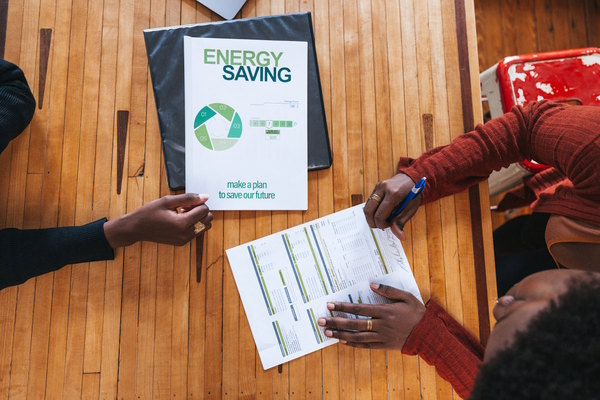Driving change with sustainability reporting

Drew Davy at Grosvenor Property UK argues that sustainability reporting is a changemaking opportunity – not just a matter of corporate compliance
It’s time to look at sustainability reporting differently. As things stand, too many companies view it simply as a matter of corporate compliance. From this standpoint, increasing requirements – such as those laid out in the EU’s Corporate Sustainability Reporting Directive (CSRD) – can provoke anxiety.
Indeed, a new PwC report has revealed that biodiversity disclosure is among companies’ biggest reporting concerns. A quarter of businesses lack confidence in their ability to meet the CSRD’s requirements when it comes to their impacts on nature.
But what if we looked at the situation differently? What if we all saw sustainability reporting as our means of helping to upgrade and futureproof the global economic system?
In a crises-riven world, we urgently need transformational change to create a fairer, greener and better economy. Businesses are central to that transition. With a shift in mindset, we can view sustainability reporting as an opportunity for positive and exciting change, rather than a source of stress.
But how do we do that? Here are my four takes:
1. A driver of business success
Business is changing. Modern, responsible businesses care about their impacts on people and the planet, as well as their profits. With ever-increasing regulation and consumer demand for corporate transparency, this is an unstoppable shift.
In this context, sustainability reporting goes beyond just data collection and presentation. It involves rethinking overall corporate strategy so it aligns with sustainability objectives. By incorporating social and environmental metrics into strategic decision-making, businesses can ensure that sustainability becomes a fundamental driver of their success in a changing world.
2. Enhancing risk management
As the climate and nature crises escalate, sustainability is intrinsically linked to corporate resilience. At a time when rising temperatures, changing weather patterns and collapsing ecosystems are impacting all our markets, resilience is essential.
Good reporting isn’t just a tool to manage today’s risks, but a guide to managing our future operational context. It’s how we can predict specific risks and plan appropriate mitigations – enhancing overall efficiency. It’s key to business survival.
3. Inspiring sustainable behaviours and culture
The transition to a better way of doing things requires businesses to change their internal culture. Effective sustainability reporting plays an essential role in making this happen.
Whether through storytelling, highlighting best practices or underlining the impacts of individual actions, reporting can bring your goals to life. By educating your teams and giving them tangible goals to work towards, it can boost their confidence and inspire positive behaviour change.
4. Becoming comfortable with ambiguity
We are entering a new age. We are leaving the old business status quo behind and working out how to do things differently. In today’s dynamic business landscape, leaders must be comfortable navigating uncertainty. By embracing ambiguity, we can be open to learning and experimenting.
As pioneers of a new way of doing things, we are inevitably going to have to face a certain amount of trial and error. But we need to accept it as part of the process and stay focused on innovating for the long-term. Failure is a route to success – but sustainability reporting can help enormously by promoting transparency, accountability and adaptability on the journey.
Optimising change
To optimise the changemaking opportunity that sustainability reporting presents, it’s crucial to excel at it. Here are three ways to make it standout:
- Engage stakeholders. Meaningful engagement with stakeholders is essential. Involving all internal teams in the reporting process is the first step. Including external suppliers is the next. Such widespread engagement is how we can build trust, gather valuable insights and foster collaboration towards shared sustainability goals.
- Set SMART objectives. Setting specific, measurable, achievable, relevant and time-bound objectives provides clarity and focus. SMART objectives guide organisations towards tangible outcomes and demonstrate measurable progress over time.
- Be transparent. As well as being a vital tool in reputation management, transparency is fundamental to credible sustainability reporting. By openly disclosing environmental and social performance data, companies can build trust, enhance their credibility and hold themselves accountable to their stakeholders. When coupled with SMART objectives, transparency also fosters honest dialogue, drives improvement and reinforces integrity.
Later this year, we at Grosvenor Property UK will publish our first combined environmental and social impact report. It will share the progress we’ve made in developing and managing places in harmony with people and the planet.
We don’t view this report as an unavoidable bolt-on to our financial reporting, but a strategic cornerstone of our business. We hope it offers an insightful narrative about our impacts – while sharing our learnings and providing inspiration and motivation to our teams and partners.
Sustainability reporting is no cause for concern. If business leaders rethink their attitude, they can embrace it as an amazing opportunity. The reality is that companies can use reporting as an opportunity for positive, purpose-led change – and the co-creation of a better tomorrow.
Drew Davy is Senior Sustainability Insights Manager at Grosvenor Property UK, a values-led international property group
Main image courtesy of iStockPhoto.com and Dilok Klaisataporn

Business Reporter Team
Most Viewed
Winston House, 3rd Floor, Units 306-309, 2-4 Dollis Park, London, N3 1HF
23-29 Hendon Lane, London, N3 1RT
020 8349 4363
© 2024, Lyonsdown Limited. Business Reporter® is a registered trademark of Lyonsdown Ltd. VAT registration number: 830519543





